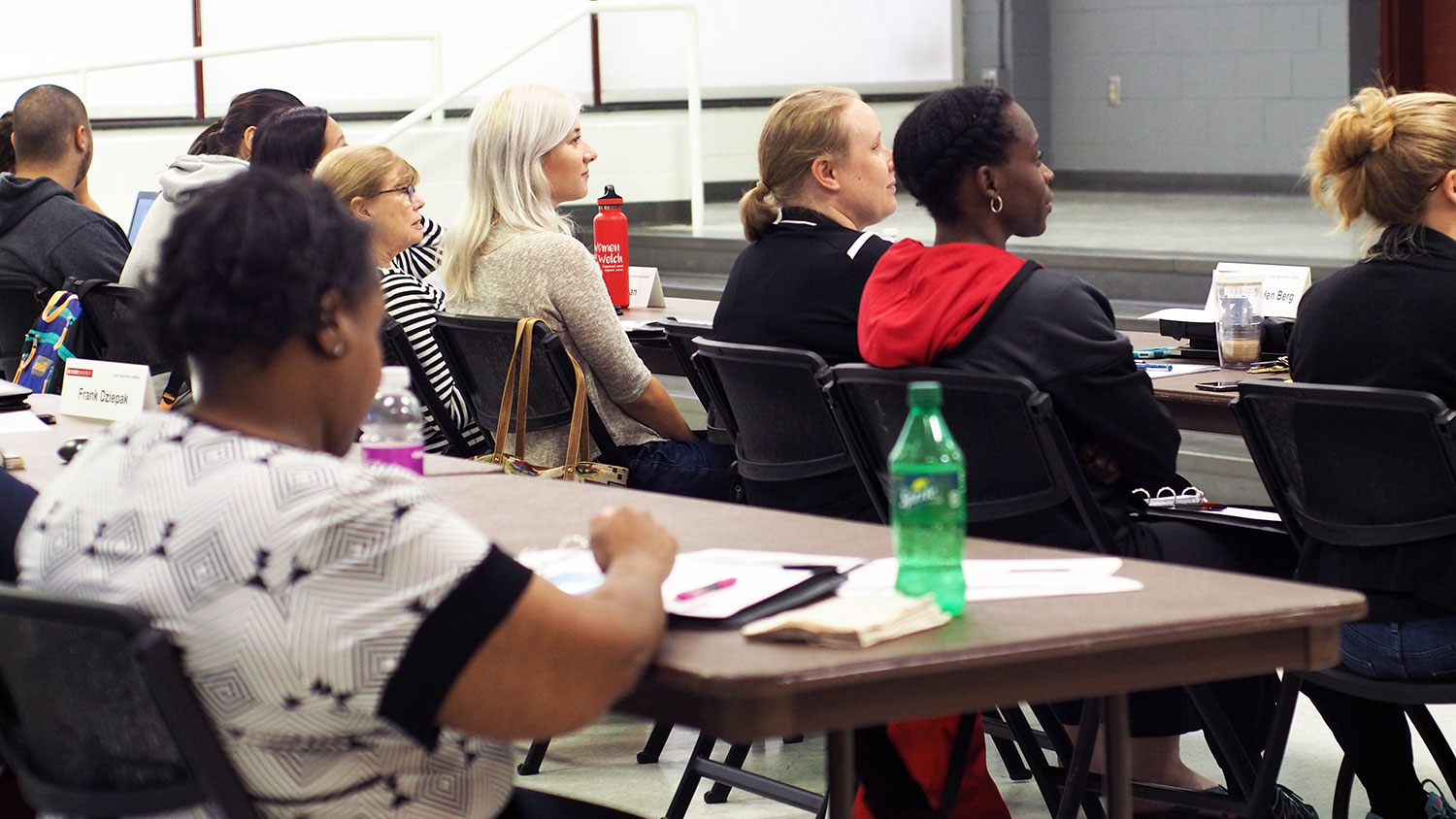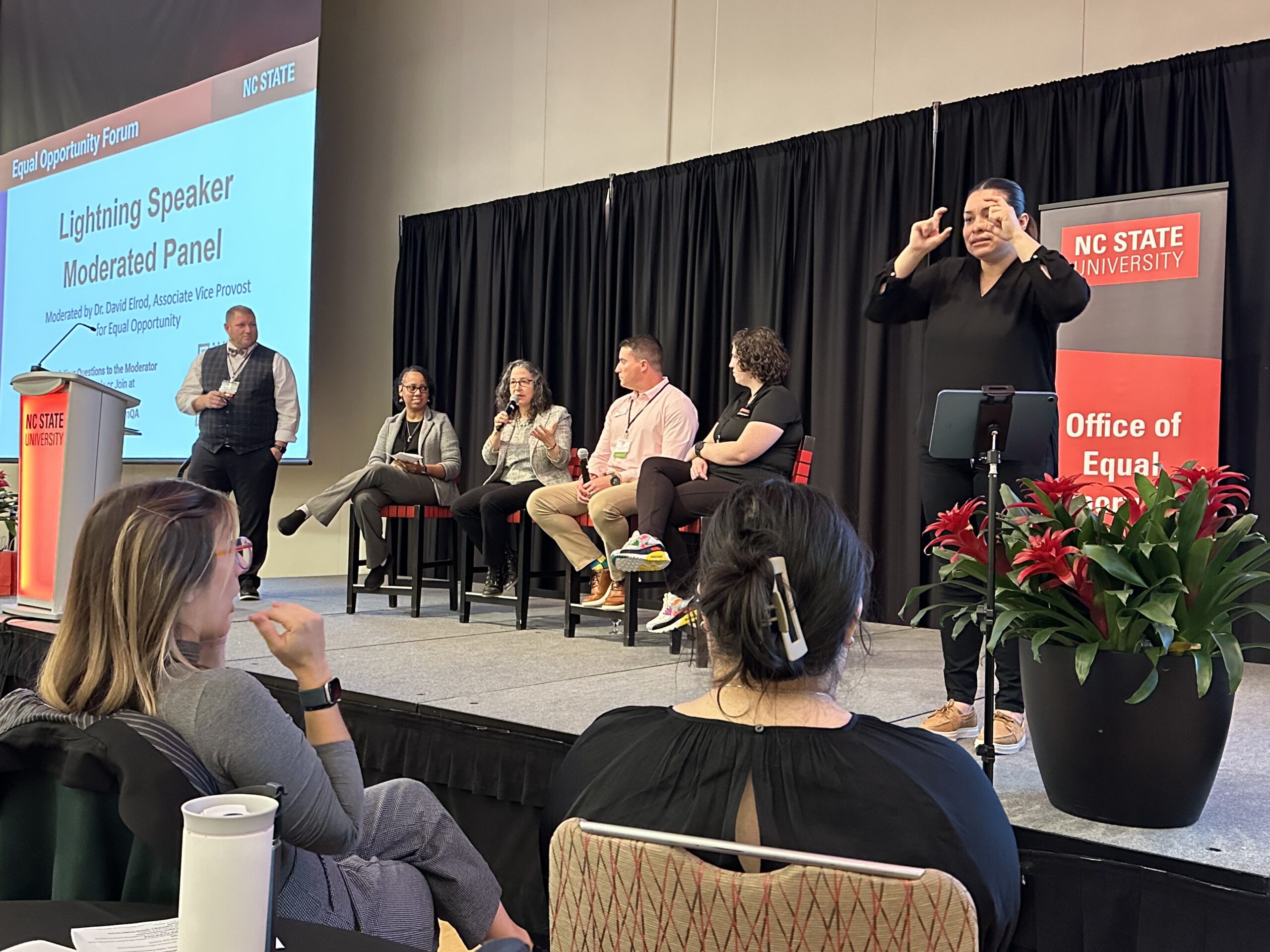Workplace Diversity and Inclusion Considerations for Supervisors

The Office for Institutional Equity and Diversity strives to promote strong understanding of the importance of diversity and inclusion among managers and supervisors at NC State. According to research, employees are more likely to perform and be successful in an environment that minimizes biases and promotes diversity. Supervisors and managers can demonstrate a commitment to diversity and inclusion by understanding concepts of diversity and inclusion and practicing cultural competence.
UNC System policy defines diversity as the ways in which individuals vary, including, but not limited to, backgrounds, personal characteristics, ideas, beliefs, cultures and traditions that distinguish one individual or group from another, which may include, but are not limited to, federal, state, university and constituent institution protected classes (or statuses). Diversity encompasses an infinite range of an individual’s unique characteristics and experiences, including communication styles, physical characteristics such as height and weight, as well as education and work experience.
Many diversity concepts may have negative consequences and impact, including stereotyping, prejudice, perception lenses, microaggressions, diversity dimensions, micro-inequities, implicit bias, privilege and unconscious bias. All of these concepts inhibit our ability to work effectively with people who are unlike ourselves. Being aware of our assumptions and biases, viewing cultural differences in a favorable manner and learning about different cultural practices and worldviews are key components in the development of cultural competence.
Cultural competence is the ability to successfully interact with people of different backgrounds and recognize differences in experience. Culturally competent managers value diversity and actively promote inclusion by consistently demonstrating mutual respect and willingness to collaborate in cross-cultural situations. Supervisors and managers who are culturally competent can communicate sensitively and effectively with people who may not share their views and values. They can also help to build culturally competent employees who, in turn, work to provide services that are consistent with the citizens of NC State’s needs and values.
In inclusive workplaces, managers and supervisors encourage and promote a work environment and community where everyone, regardless of background, skill, belief, gender, sexual orientation, age, gender identity or disability, feels welcome, included and supported.
NC State promotes diversity and inclusion in the workplace by offering a variety of trainings and workshops here on campus, including cultural competence training, discrimination and harassment prevention and response training (DHPR), the Equal Employment Opportunity and Diversity Fundamentals (EEODF) course for managers and supervisors and many other offerings.
- To learn more about trainings related to workplace diversity and inclusion, visit OIED’s Workshops and Training page.
- See also the related article, Have You Taken a Diversity Workshop this Semester?
Dave Johnson is an equal opportunity officer in the Equal Opportunity and Equity unit within the Office for Institutional Equity and Diversity.


